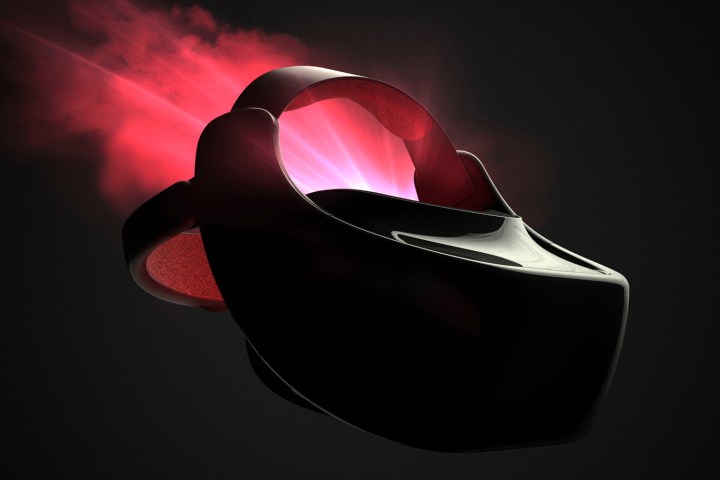
Reports have surfaced that HTC will officially reveal its stand-alone VR headset for the Chinese market during its annual Vive Developer Conference in Beijing starting November 14, 2017. This model will be based on Qualcomm’s VRDK developer kit packed with its Snapdragon 835 processor, and its inside-out positional tracking for full-body movement in VR.
In addition to the Snapdragon processor, Qualcomm’s developer kit includes a single 2560 x 1440 AMOLED display, two built-in monochromatic global shutter cameras (1280 x 800) for motion tracking, two monochromatic VGA global shutter cameras for eye tracking, 4GB of system memory, and 64GB of storage. It also includes Wi-Fi and Bluetooth connectivity, and a Type-C port for charging the battery.
According to Qualcomm, the inside-out motion tracking provides a better experience for mobile VR. While products like Samsung’s Gear VR only track head movement (aka three degrees of freedom), it’s new mobile VR platform also tracks your physical location in the real world (aka six degrees of freedom). And unlike the HTC Vive for PC, there are no external sensors tracking your movement, nor is there a physical tether to a PC. Even more, you don’t need a smartphone.
HTC’s deal with Google to produce a Daydream-based stand-alone VR headset likely relies on the same developer kit, only Google has created its own method for tracking movement called WorldSense. Content will likely be distributed through Viveport and Google Play when the stand-alone unit arrives before the end of 2017. It also won’t be sold in China, hence HTC’s partnership with Qualcomm to produce a version specifically for that market.
That said, the model shown during the conference on November 14 won’t include Google’s Android and Daydream platforms. But there’s still a possibility that HTC will officially reveal its Daydream version in the United States at the same time. It may be marketed as Vive Eclipse or Vive Focus whereas the China-bound model may simply be coined as Vive M, or Vive Mobile.
Virtual reality is about to become a bit more mainstream before the end of the year. As previously reported, both HTC and Lenovo are providing Daydream-based stand-alone models before December’s end. Samsung is supposedly working on a stand-alone unit too while the Oculus Go headset is slated for early 2018. None of these units require a smartphone or external motion-tracking sensors.
Meanwhile, VR headsets designed specifically for Windows 10 are making a splash. Five are now listed on Microsoft’s online store selling for under $500, manufactured by Acer, Dell, HP, Lenovo, and Samsung. All support the new Windows Mixed Reality platform for virtual reality and augmented reality experiences and applications.
Editors' Recommendations
- HTC just fixed a major shortcoming of standalone VR headsets
- Two new ‘game-changing’ VR headsets could arrive at HTC’s ViveCon next week


